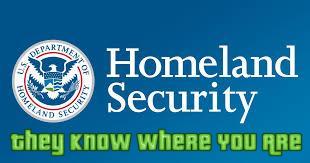Update (5/20/19): Oakland Privacy follow-up letter to BART suggests a) the use of rear camera readers which capture license plates only, without collateral pics of vehicle occupants or interiors and b) limitations on access to BART ALPR data from other federal and local agencies who use the fusion center database. See full letter below.
Update (4/29/19): Ryan Devereaux at The Intercept released a story this morning confirming that a private intelligence contractor pulled information about family separation protests in 2018 off of social media, compiled a dossier and sent it to all the federal fusion centers, including NCRIC. This unconstitutional surveillance of First Amendment protected activity is unacceptable. Combined with previously revealed information about CPB and ICE blanket access to DMV records via the CLETS database, it is becoming clear that BART providing real time geolocation data to the federal fusion center is an existential threat to immigration activists, and all who engage in First Amendment-protected activities.
Update: BART approved the policy on a preliminary basis and will be running a one station pilot (station TBD), with any further expansion requiring a return to the board and a review of the policy.
SF Examiner: BART Board Approves Automated License Plate Surveillance in Parking Lots
NBC Bay Area: BART Board Approves License Plate Readers in Parking Lots
SF Gate: BART Board Approves Policy Governing Use of License Plate Readers
Mercury News: BART Revives Plan To Put License Plate Readers in Parking Lots
A proposal to be discussed at the April 25 meeting of the board of the Bay Area Rapid Transit District (BART) plans for the installation of automated license plate readers (ALPR) at all BART parking lots. On the April 25 meeting agenda, a license plate reader use policy and surveillance impact report will be presented for approval and to begin the process of mass surveillance of all BART riders who use the system’s parking areas.
The proposal would upload the data to the Northern California Regional Intelligence Center (NCRIC), a Department of Homeland Security federal fusion center.

BART flirted with the use of license plate readers in system parking lots in 2016, when operational staff started a pilot program at McArthur BART in secret. After public protest, the Board of Directors voted to end the pilot program, but it continued despite the board vote throughout that year and 2017 and BART uploaded tens of thousands of scans to Homeland Security.
It was a bad idea then and it is a bad idea now. Here are a few reasons why.
COST: BART anticipates using 628 license plate readers (some mobile and some fixed) at a cost of approximately $22,000 each for an equipment cost of thirteen million dollars. When these costs are recouped at the fare box (BART receives the vast majority of its operating revenue from passenger fares), the cost of living in the country’s most expensive region will go up yet again.
CRIME: BART cities property crimes as the reason for the massive license plate reader installation, but their own statistics show a decline in auto-related property crimes from 2017 to 2018. From BART’s statistics as cited in their staff report; 1) Auto Burglaries declined by 20% between 2017 and 2018 2) Auto Thefts declined by 15.7% between 2017 and 2018 3) Catalytic Converter Thefts declined by 31.5% between 2017 and 2018.
ERROR RATE: Error rates in automated license plate reader “hot lists” which link license plates to criminal activity are estimated to be 5%. That means 1 out of 20 “hits” are false. Having BART Police, who have a disturbing history of excessive use of force, believing that people are criminals who are not criminals is a recipe for tragedy.
RACIAL PROFILING: BART divides station parking areas into “high priority” and “low priority”. Here is a list of some of the BART stations labeled as high priority for a large quantity of license plate readers: Fruitvale, Coliseum, Hayward, West Oakland, Pittsburg/Bay Point. Here is a list of some of the BART stations labeled as low priority for a small quantity of license plate readers: Castro Valley, North Berkeley, Rockridge, Millbrae.
ICE ACCESS: BART declares affirmatively that ICE and Homeland Security Investigations will have no access to the license plate reader data they will store at the federal fusion center. But we know that NCRIC provides access to several federal agencies that are not constrained by the California Values Act, including the FBI, the Joint Terrorism Task Force, DEA, ATF and even the IRS. And public records inquiries have shown that ICE has gotten access to license plate reader data by asking other law enforcement agencies to make requests for them.
BART license plate reader data, even if only held for 30 days, is particularly sensitive since it geolocates daily commuting patterns and not just random traffic passage. If a car is parked at a BART station at 6am every workday for a month, that provides enough specific information to precisely locate the occupants of that vehicle.
BART is in the business of transportation. We suggest they stay in that business and invest 13 million dollars into more rush hour trains, not building out the infrastructure of the surveillance state.
BART BOARD OF DIRECTORS MEETING
THURSDAY APRIL 25 9:00AM
BART BOARD MEETING ROOM
350 WEBSTER STREET OAKLAND.
Oakland Privacy Follow-Up Letter to BART May 20, 2019
Oakland-Privacy-Letter-Regarding-ALPR-5-20-2019